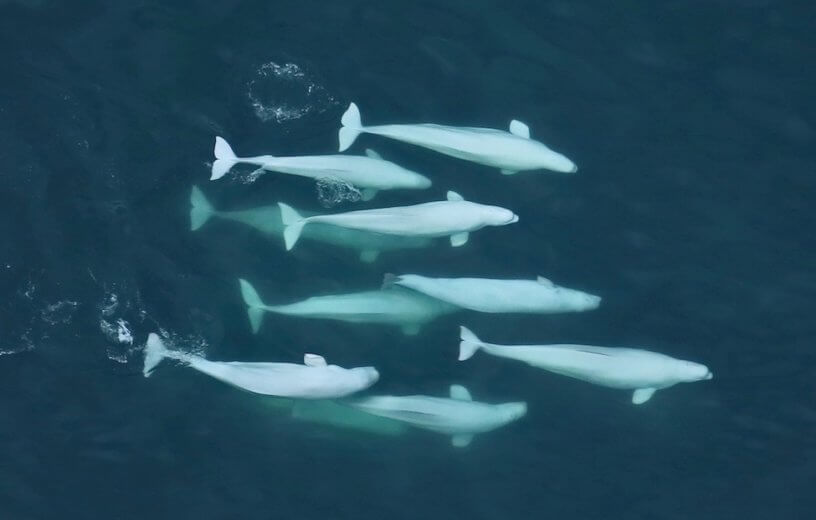BOCA RATON, Fla. — Humans aren’t the only species that heavily rely on family and traditions to dictate behavior. It turns out whales do too.
Previous research on the sounds and “voices” of beluga whales suggests they are capable of complex relationships with each other. Belugas migrate from cold to warm waters with the seasons, often congregating in certain areas to socialize and mate. They travel great distances to feeding grounds as well.
In this recent study out of Florida Atlantic University’s Harbor Branch Oceanographic Institute, belugas were found to value their culture and ancestral roots, much like humans. FAU researchers conducted a genetic study of kinship among the whales and found that they routinely return to the same locations to feed, breed, and interact with other whales — a behavior that continues for generations to come.
How is this tradition of sorts passed down? The authors believe it likely involves social learning passed down from mother to calf. The study found elaborate migratory patterns as standard behavior for beluga whales. Like people, the whales found themselves drawn back to the areas they were raised.
“What intrigued us most was whether particular whales returned to where they were born or grew up and if this was an inherited behavior,” explains lead author Dr. Greg O’Corry-Crowe, a research professor at FAU’s Harbor Branch, in a release. “The only way that we could definitively answer these questions was to find and track close relatives from one year to the next and one decade to the next.”
The study monitored 1,647 beluga whales from coastal areas in the Pacific between 1978 and 2010. The researchers examined 1,444 mitochondrial DNA samples. Whales that were closely related to each other were found to congregate at the same coastal summering areas every year. Close kin were found to congregate at the same areas up to 20 years apart.
“Findings from our study are expanding our understanding of how sophisticated non-primate societies can be and how important culture is for the survival of these species,” says O’Corry-Crowe. “Our findings also will influence our thinking in terms of how populations and species are going to adapt to dramatic environmental changes. There are few places where this is more urgent than in the rapidly changing polar regions.”
The full study was published March 22, 2018 in the journal PLOS One.
